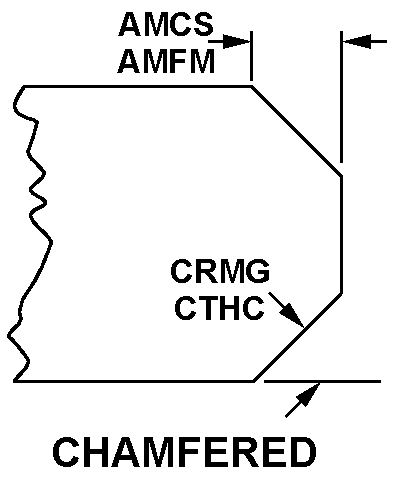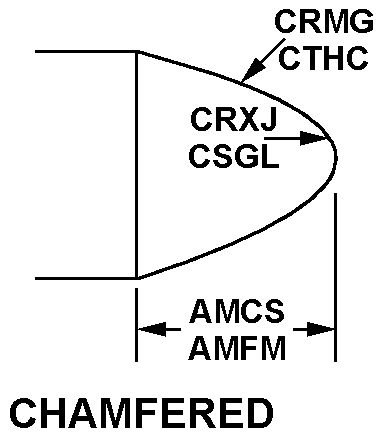5315001413891
Price Quote Get an up to date pricing and availability quote for this product. Order online or over the phone.
Quality Commitment
Serving our customers with quality and safety first.
- AS9120 Certified
- Audited supply chain
- ITAR Registered
- DDTC Registered
- HAZMAT Certified
- Customer service objectives
- Every product 100% inspected

5315-00-141-3891 Specification Set by the OEM (see RNCC code 3)
chamfered
chamfered
2a
RIGHT-Hand
0.560in. ⁓9/16"
6.000in.
0.3124in. and 0.3125in.
0.120in.
0.040in.
not identical
0.312in. ⁓5/16"
threaded end
45.0 degrees
45.0 degrees
steel comp 1112
astm A108 assn std single material response
zinc
QQ-Z-325 cl 2 ty 2 fed spec single treatment response
unc
Cross Reference Parts Part numbers that meet the specification outlined on this page and set by the OEM
Identification Item Identification Guide (IIG) and Item Name Code (INC)


Definition Definition of approved item name (AIN): "PIN,STRAIGHT,THREADED"
A headless, cylindrically-shaped item, having external threads at one end only. The threaded and plain portions are of one nominal diameter. Includes items having cotter pin hole(s) on either one or both ends. Its length must not exceed 12 inches (304 mm). It may have a recess drive feature. See also pin, straight, headless. Excludes stud, welding; and setscrew.
Packaging & Dimensions Packaging instructions, special markings, and approx. weight/dims
Packaging Codes
OPI: Optional Procedure Indicator Code. A one position alpha code that indicates the allowable deviations from the prescribed requirements.
SPI No.: Special packaging instructions number.
LVL A/B/C: Indicates the type of shipping container required for level A, B, or C maximum packing protection.
SPC Mkg: A two position code that identifies the special markings applied to the container, which is part of the total pack to protect the contained item during preservation, packing, storage, transit and removal from the pack.
5315-00-141-3891 Material Hazmat, Precious Metals, Criticality, Enviroment, and ESD
Indicates there is no data in the hmirs and the nsn is in a fsc not generally suspected of containing hazardous materials.
Precious metal content is unknown
The item does not have a nuclear hardened feature or any other critical feature such as tolerance, fit restriction or application.
Identification Codes
HMIC: Hazardous Material Indicator Code. A one position code that identifies a hazardous item.
PMIC: Precious Metal Indicator Code. A one position code which identifies items that have precious metals as part of their content. precious metals are those metals generally considered to be uncommon, highly valuable, and relatively superior in certain properties such as resistance to corrosion and electrical conductivity.
ESD: Electrostatic Discharge. Indicates if an item is susceptible to electrostatic discharge or electromagnetic interference damage. electrostatic discharge damage occurs when an accumulation of static electricity generated by the relative motion or separation of materials is released to another item by direct contact. electromagnetic interference damage occurs when an item comes into proximity with an electrostatic or magnetic field.
ENAC: Enviromental Attribute Code. Identifies items with environmentally preferred characteristics.
CRITL: Criticality Indicator Code. Indicates an item is technically critical by tolerance, fit, application, nuclear hardness properties, or other characteristics.






